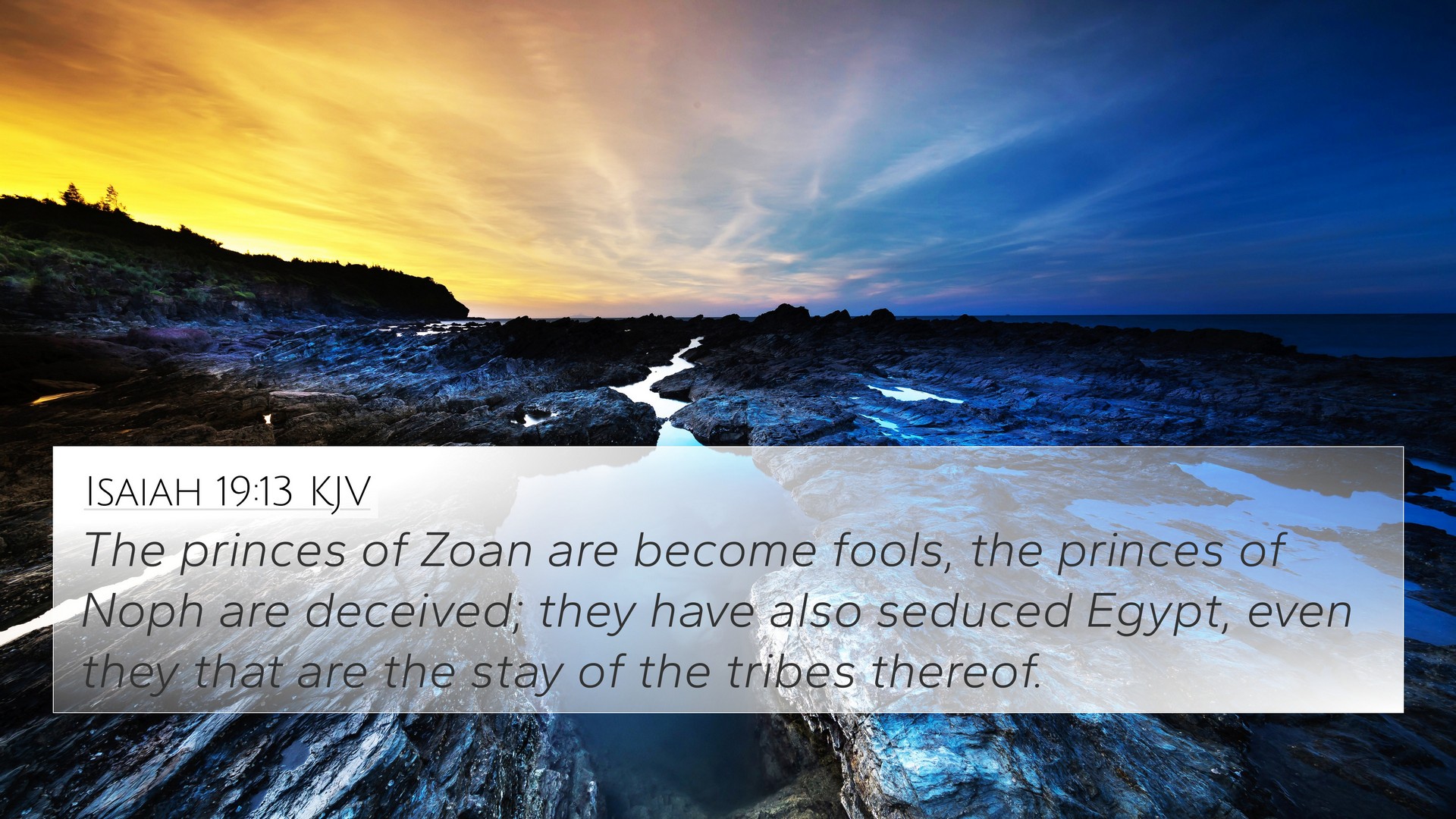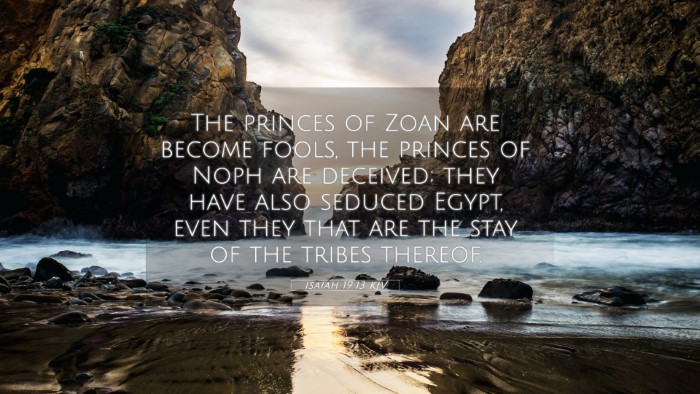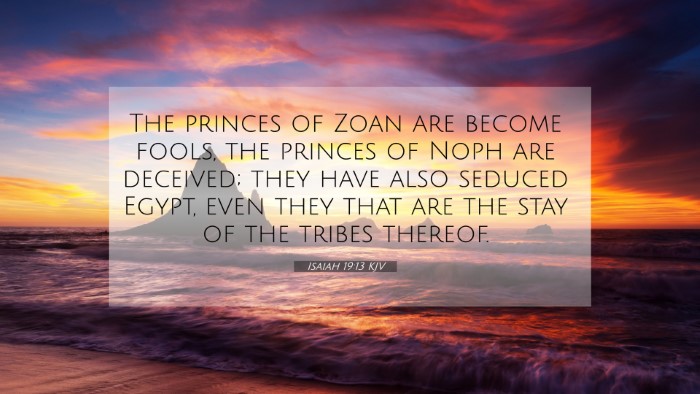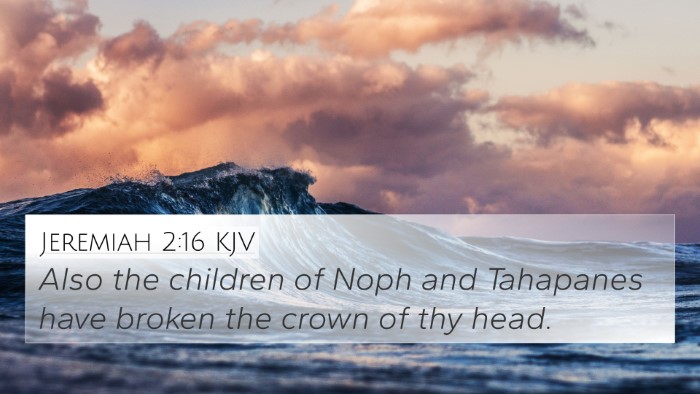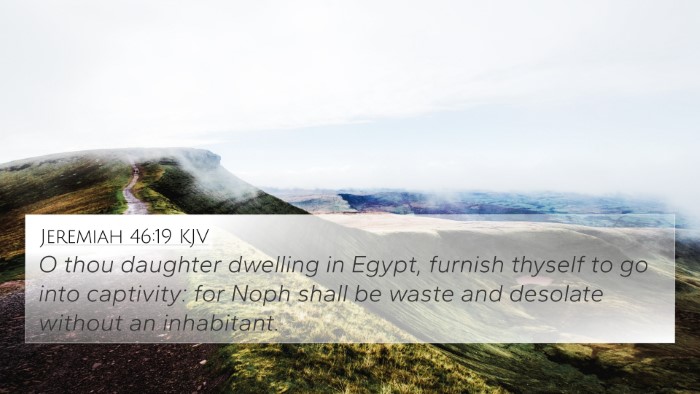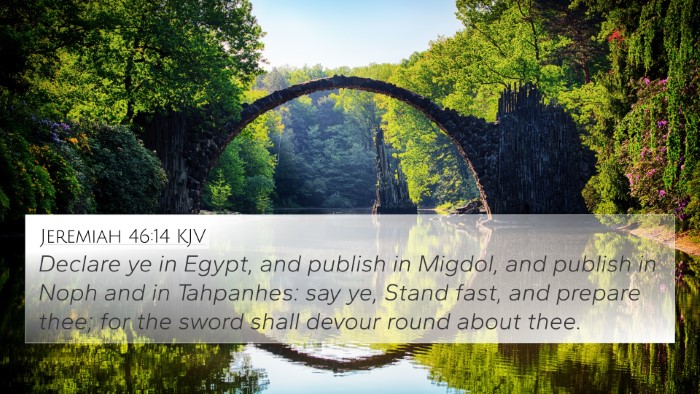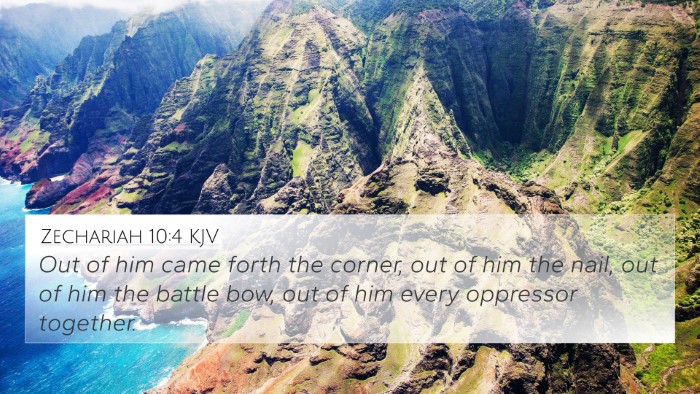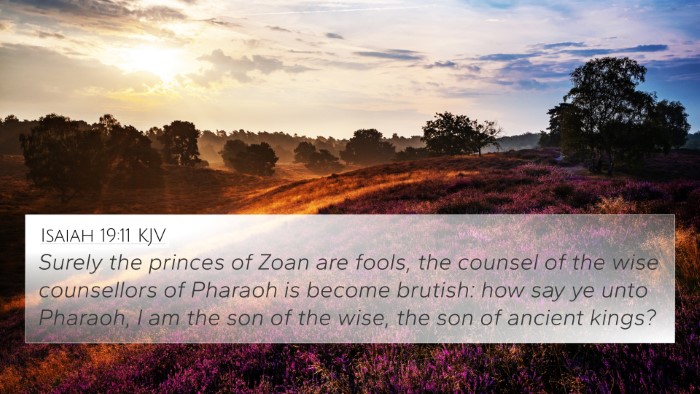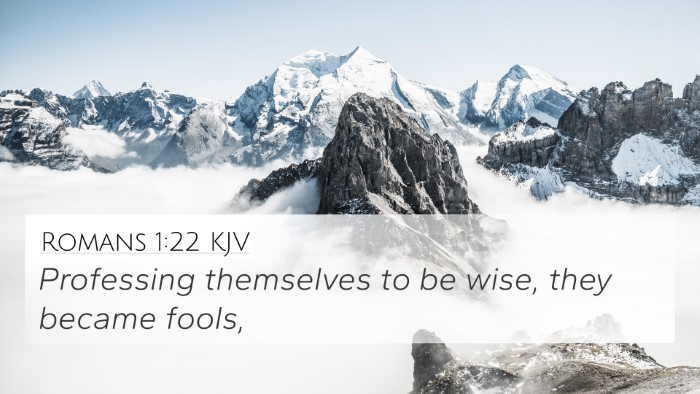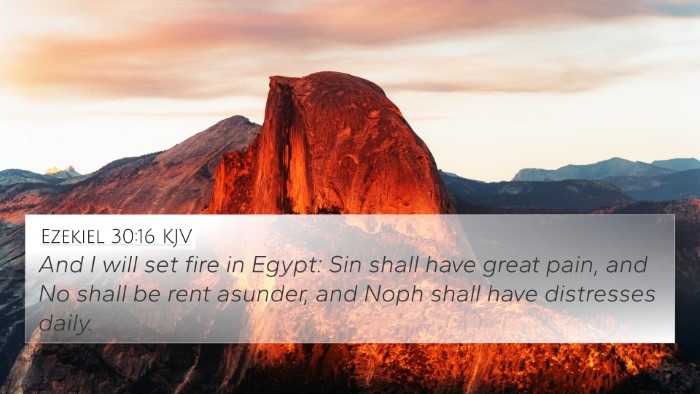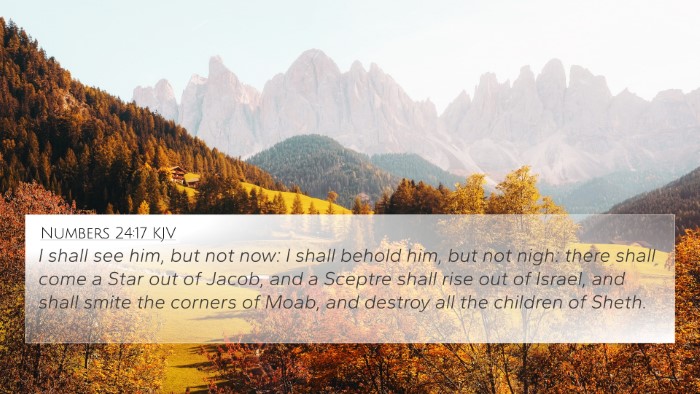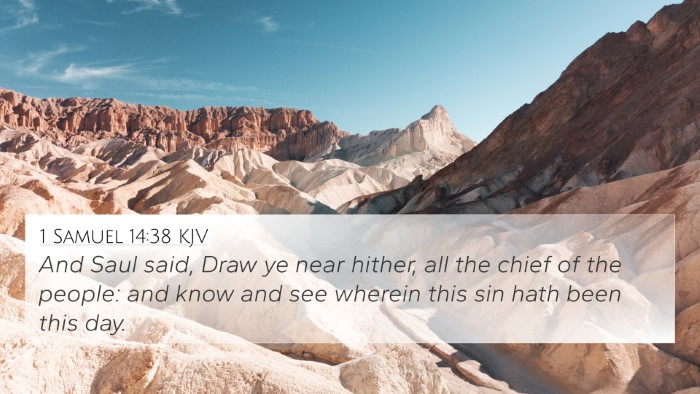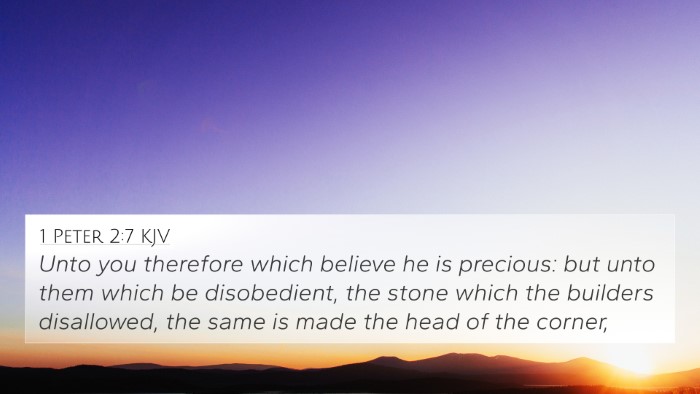Understanding Isaiah 19:13
Verse: Isaiah 19:13 - "The princes of Zoan are become fools, the wise counsellors of Pharaoh are deceived; they have caused Egypt to err in his doctrine."
Summary of Biblical Meaning
This verse reflects the decline of wisdom and understanding among the leaders of Egypt, particularly those in Zoan, a significant city in ancient Egypt. The text announces that the wise counselors of Pharaoh, once esteemed for their knowledge, have become foolish, leading the nation astray. This may symbolize the futility of relying on human wisdom in the face of divine judgment.
Insights from Commentaries
-
Matthew Henry:
Henry emphasizes the catastrophic effects of moral and spiritual folly among leaders. He suggests that the downfall of Egypt's leaders symbolizes a broader spiritual blindness that results from turning away from God. Their foolishness results in a failure to recognize divine guidance, ultimately leading to their unrest and confusion.
-
Albert Barnes:
Barnes notes that the ‘princes of Zoan’ signifies a specific group of advisors steeped in Egyptian culture but blinded by their pride. He argues that this foolishness culminates in misguidance not only for Pharaoh but also for the people of Egypt, pointing to a theme of collective spiritual corruption and the consequences of rejecting divine law.
-
Adam Clarke:
Clarke highlights the juxtaposition of human wisdom against God's omniscience. He asserts that the wisdom of men without the fear of God is folly. Clarke urges readers to recognize that all knowledge and counsel should align with divine truth to be effective, underscoring the importance of spiritual discernment in leadership roles.
Connections to Other Bible Verses
This verse can be cross-referenced with several other scriptures, highlighting thematic links and interrelations within the Bible:
- Proverbs 1:7 - "The fear of the LORD is the beginning of knowledge: but fools despise wisdom and instruction."
- Jeremiah 10:14 - "Every man is brutish in his knowledge: every founder is confounded by the graven image; for his molten image is falsehood, and there is no breath in them."
- 1 Corinthians 1:19 - "For it is written, I will destroy the wisdom of the wise, and will bring to nothing the understanding of the prudent."
- Isaiah 5:21 - "Woe unto them that are wise in their own eyes, and prudent in their own sight!"
- Proverbs 28:26 - "He that trusteth in his own heart is a fool: but whoso walketh wisely, he shall be delivered."
- Romans 1:22 - "Professing themselves to be wise, they became fools."
- Psalms 146:3 - "Put not your trust in princes, nor in the son of man, in whom there is no help."
Interpretative Themes
The overarching theme of Isaiah 19:13 explores the downfall of human wisdom contrasted with divine truth. This can be seen through various lenses:
- Moral and Spiritual Wisdom: Highlighting the importance of seeking divine guidance in leadership.
- Divine Judgment: Understanding that neglecting God's law invites consequences.
- Corporate Responsibility: Reflecting on how leaders' decisions impact entire nations.
How to Use Cross-Referencing Resources
Utilizing a Bible concordance or a cross-reference Bible study guide can deeply enrich your understanding of scripture. Here’s how to effectively identify connections:
- Look for keywords in the verse to find related scripture.
- Use thematic studies to uncover cross-references related to shared ideas.
- Engage with commentaries that provide deeper insights on specific topics.
Bible Cross-Reference Tools
Various tools exist to aid in cross-referencing Biblical texts. Some resources include:
- Bible Chain References - Follow themes through side notes.
- Concordances - Find where specific words appear throughout scripture.
- Online Bible study tools - Interactive platforms for searching scriptures.
Conclusion
Isaiah 19:13 serves as a powerful reminder of the consequences of ignoring wisdom that comes from God. By employing tools for Bible cross-referencing and examining related verses, we can gain a fuller understanding of how divine wisdom contrasts with human folly. This not only enhances our personal faith journey but also equips us for sharing insights with others.
